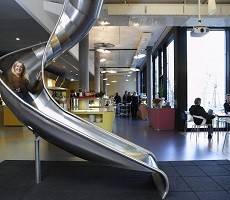May 21, 2016
Flexible working babble + Tall buildings + Engaging workplace design 0
 In this week’s Newsletter; Matias Rodsevich suggests three performance management must haves; Neil Barnfather flags up a lack of disabled representation at board level; and Dr Daniel Wheatley says work-life balance and flexible working continue to be viewed as a ‘women’s issue’. From the latest issue of Work&Place, Serena Borghero looks at the role of workplace design in employee engagement; Mark Eltringham argues there’s no evolution towards a universally accepted model of workplace design and management culture; and that when it comes to skyscrapers, big and clever are two different things. There’s evidence that London’s Central office market has hit its peak; the British public remains ‘clueless or indifferent’ about the nature of smart cities; and we reveal that graduates prefer digitised workplaces. You can download our Insight Briefing, produced in partnership with Connection, on the boundless office; visit our new events page, follow us on Twitter and join our LinkedIn Group to discuss these and other stories.
In this week’s Newsletter; Matias Rodsevich suggests three performance management must haves; Neil Barnfather flags up a lack of disabled representation at board level; and Dr Daniel Wheatley says work-life balance and flexible working continue to be viewed as a ‘women’s issue’. From the latest issue of Work&Place, Serena Borghero looks at the role of workplace design in employee engagement; Mark Eltringham argues there’s no evolution towards a universally accepted model of workplace design and management culture; and that when it comes to skyscrapers, big and clever are two different things. There’s evidence that London’s Central office market has hit its peak; the British public remains ‘clueless or indifferent’ about the nature of smart cities; and we reveal that graduates prefer digitised workplaces. You can download our Insight Briefing, produced in partnership with Connection, on the boundless office; visit our new events page, follow us on Twitter and join our LinkedIn Group to discuss these and other stories.
































May 16, 2016
Women (and men) don’t enjoy the full wellbeing benefits of flexible working 0
by Dr Daniel Wheatley • Comment, Flexible working, Wellbeing
More →